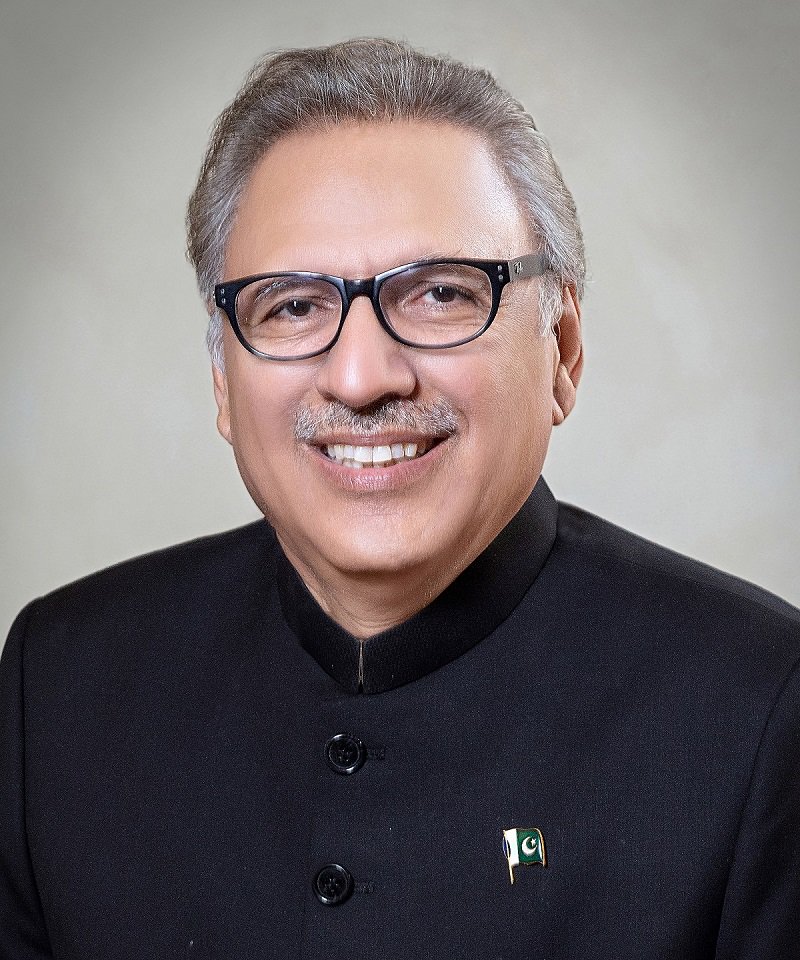
“It is regrettable that, according to a report, 80 per cent of women graduating from medical institutions do not work,” the president said on Thursday while addressing the 27th Vice-Chancellors Committee meeting in connection with Ehsaas Undergraduate Scholarship Project.
Under the Ehsaas Undergraduate Scholarship Project, scholarships will be awarded to low-income students enrolled in four- and five-year undergraduate programmes.
All students from low-income families studying in undergraduate programmes in public sector universities will be eligible to apply for the scholarship.
Fifty per cent of the scholarships will be awarded to female students, while students with special needs as well as those from remote and disadvantaged areas will also be given preference.
Taking with reference to the scholarship, the president appreciated that gender balance has been maintained in the project. “I also advise university heads to take greater care of specially-abled students in whatever form they need it,” he added.
Dr Alvi regretted that students from low-income families are forced to quit education after matriculation or intermediate due to financial constraints. “If only three per cent of students acquire college education, 97 per cent of the country’s intellect is neglected,” he said.
He said the state is responsible for countering elitism by taking such measures like the Prime Minister’s Ehsaas Programme, which Prime Minister Imran Khan launched in March this year with the aim “to reduce inequality, invest in people, and lift lagging districts.”
Elaborating on his own experiences, the president highlighted the importance of merit and need-based scholarships in a student’s life. “It is a major development that provision of educational opportunities to undergraduate students is focused under this project.”
He urged the vice-chancellors to take a ‘quantum leap’ for enhancement in quality of education in order to make the country’s youth productive in terms of provision of service to the society. “There is a need to ensure fairness and transparency in the execution of Ehsaas Undergraduate Scholarship Project,” he said.
Special Assistant to Prime Minister on Social Protection and Poverty Alleviation Dr Sania Nishtar said the project aims at promoting human capital investment, as it is imperative to invest in the human capital to make the youth technologically skilled to meet the future challenges.
She said these scholarships are part of a much broader effort being made under the Prime Minister’s Ehsaas Programme, to intervene on behalf of the welfare of the poor.
Dr Nishtar termed the project a paradigm shift in the state scholarship policy. She said Prime Minister Imran Khan is keen that this programme should benefit the maximum number of students across the country, adding that the government will allocate more resources for this in the coming years.
The Higher Education Commission (HEC) Chairman Tariq Banuri said 249 out of 250 students from low-income families cannot afford to acquire undergraduate education, so the government must enhance the budget for Ehsaas Scholarships.
He told the gathering that as many as 132,000 students have submitted applications under the first phase. “This is a fundamentally transformative project and its objective is that no child should remain deprived of education due to financial constraints.”
The chairman said the project is the largest-ever undergraduate scholarship initiative of Pakistan. “Our children need our help to gaining access to higher education.”
He urged the VCs to ensure transparency in the award of scholarships under the project. He proposed that five per cent of the recurrent grant awarded to public sector universities should continue to be allocated to scholarships that would supplement and fill the gaps in coverage of the Ehsaas Programme.



1732626034-0/BeFunky-collage-(92)1732626034-0-165x106.webp)

1732621030-0/Express-Tribune-(7)1732621030-0-270x192.webp)
1732622842-0/Express-Tribune-(9)1732622842-0-270x192.webp)

1725254039-0/Untitled-design-(24)1725254039-0-270x192.webp)

1732617223-0/Untitled-design-(69)1732617223-0-270x192.webp)






COMMENTS
Comments are moderated and generally will be posted if they are on-topic and not abusive.
For more information, please see our Comments FAQ